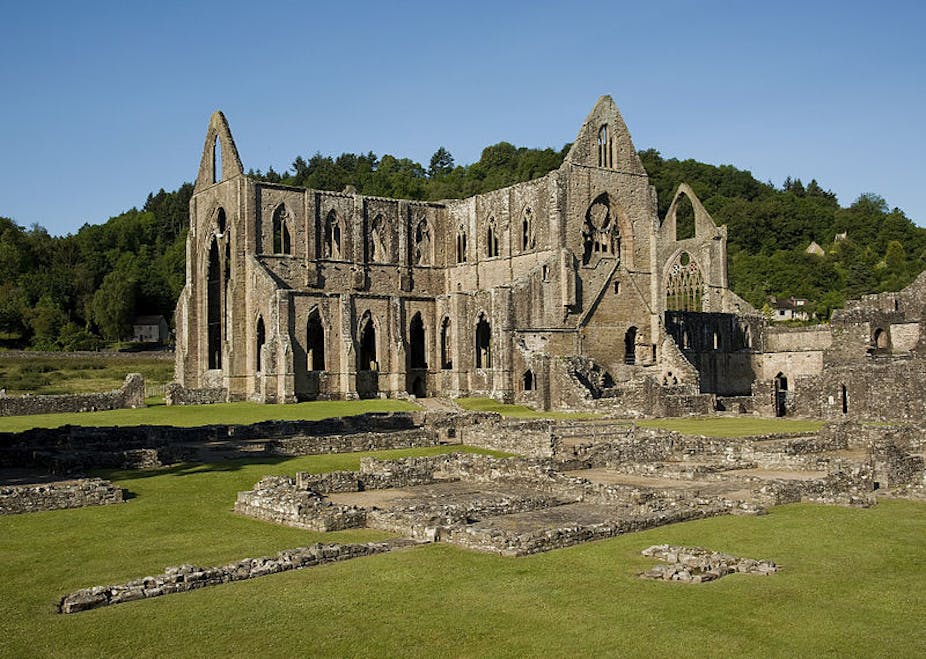All sorts of claims about religious decline are flying around at the moment, from George Carey’s comment that the Church of England is “one generation away from extinction” to Richard Dawkins’ comments about religion being “more and more being left behind.” The archbishop of York, John Sentamu, blamed Christians who “argue over words and phrases while the people of England are left floundering amid meaninglessness, anxiety and despair”.
This year I designed three large surveys of the beliefs and values of adults living in Great Britain (excluding Northern Ireland), which were administered by YouGov. With large sample sizes and many questions about “religion” and “no religion”, they offer a richer portrait of the current state of affairs than existing surveys have been able to offer.
We already know from the Census of 2011 that around two-thirds of people in England and Wales say they identify with a religion, identifying themselves as Christian (59%) or Muslim (5%) – and my survey supports this. Interestingly, however, it shows this does not translate into similar proportions of people who are happy to be labelled “religious” or even “spiritual”.

It’s common on surveys to ask people whether they are religious, spiritual, both or neither. Because I think this is a loaded way of asking things, I added another option: “I would not describe myself, or my values and beliefs, as spiritual or religious.”
So “religion” seems to have become a toxic brand, whereas identifying with a particular religious tradition is not subject to the same stigma. Belief in God also remains quite high, at around half the population, whilst atheism shows only moderate growth and remains a minority position (19% of the population).
Nevertheless, as ongoing surveys such as British Social Attitudes show, the number of self-identified Christians in the UK is declining, with Anglican losses being particularly large. At the same time, the proportion saying they have “no religion” has risen to around 25% of the population.
My survey shows these “nones” are interestingly diverse. Some 16% say they believe in God, 42% say they are atheist, and the rest are doubtful or don’t know whether there is a God. A quarter pray or practise some other spiritual activity in private, and 11% describe themselves as “spiritual”. They are united, however, in not belonging to a church, mosque or any other kind of religious group, and in not recognising the authority of religious leaders.

The institutional aspects of religion have declined the most, particularly those associated with the historic churches, both Protestant and Catholic. Regular churchgoing has been in decline for decades now, as have the proportions of people being baptised, confirmed and married in church. Church-conducted funerals are in decline. Fewer and fewer people – including Christians – recognise traditional religious authorities, or conform to their leaders’ teachings.
To take Catholics as an example, half say they are guided by their own reason, judgement, intuition or feelings, another fifth say family or friends, whilst relatively few cite religious sources: the tradition and teachings of the Church (8%), God (7%), the Bible (2%), the religious group to which a person belongs (2%), and religious leaders, local or national (0%). Indeed, if we measure “faithful Catholics” by the criteria of weekly churchgoing, certain belief in God, taking authority from religious sources, and opposition to abortion, same-sex marriage and euthanasia, only 5% of Catholics fit the mould, and only 2% of those under 30.

Most religious people in Britain today – both Christian and non-Christian – have taken part in the same ethical revolution as the rest of the population. They have become more sceptical of authority, more distant from hierarchical membership organisations, and more liberal in the sense that they believe that they should have the freedom to make up their own minds about how best to live their own lives. They have also embraced an extension of the principle of equal treatment to women, children, and gay and lesbian people.
The moral minority
Partly by just standing still, and partly by reacting against this value-shift, a much smaller proportion of the population – under 10% - now stand out as a moral minority. Just under half are religious, and they are represented by most official religious leaders. Some people – including atheists like Richard Dawkins – take them to be the true voice of religion.

What we have then are two very different paradigms of religion which co-exist in Britain today: the “traditional” institutional one, which is in overall decline, and the newer, more liberal and less institutionalised one, which is now dominant. Viewed in the terms of the first, traditional, view of religion, what’s happening looks like terminal decline, whether one is Carey, Dawkins or Sentamu.
But viewed in the terms of the new ways faith and religion are organised what’s happening looks like a creative ferment and reformation of religion. The paradigms shape the way we think and evaluate. Even for commentators on these affairs, there’s no neutral ground on which to stand.

